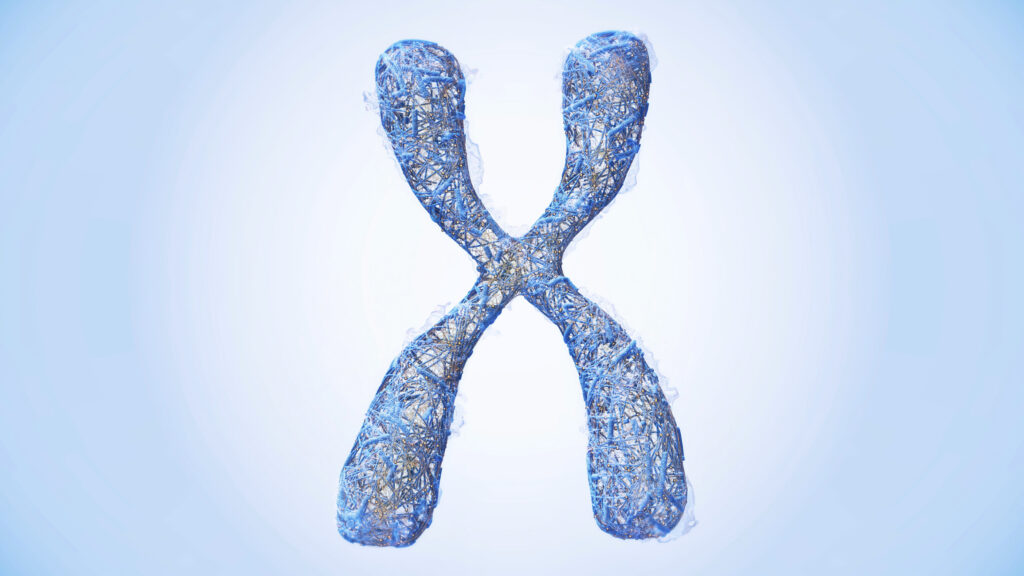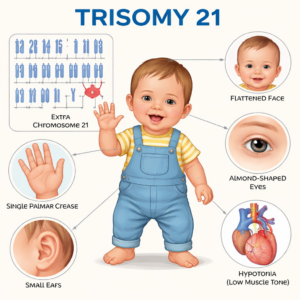As parents, we always want the best for our children, and their health is a top priority. When faced with a rare genetic condition like Triple X Syndrome, it’s natural to have concerns and questions. This condition, also called 47, XXX syndrome or trisomy X, affects only girls and occurs when they have an extra X chromosome in their cells. While this may sound alarming, most girls with this syndrome lead healthy, normal lives with proper support and care.
What is Triple X Syndrome?
It is a genetic disorder that affects about 1 in 1,000 girls. Normally, females have two X chromosomes (XX), but in this condition, they have three X chromosomes (XXX). This happens due to a random error during cell division and is not inherited from parents. Many girls and women with this syndrome may never even realize they have it, as symptoms can be mild or even absent.
Symptoms of Triple X Syndrome
The symptoms of this syndrome can vary significantly; while some girls exhibit clear and noticeable signs, others may show little to no symptoms.
Common features include:
- Taller than average height – Many girls with Triple X are taller than their peers.
- Delayed speech and language development – Some may take longer to learn to talk or have mild learning difficulties.
- Motor coordination issues – Trouble with balance or fine motor skills, like handwriting.
- Mild intellectual challenges – Most girls have normal intelligence but may struggle with math or reading.
- Emotional and social difficulties – Anxiety, shyness, or difficulty making friends may occur.
- Increased risk of developmental delays – Some girls may need extra help in school.
Diagnosis: How is it Detected?
Many cases of Triple X Syndrome go undiagnosed because the symptoms are mild. However, it can be detected through genetic testing, including:
- Prenatal testing – A blood test or amniocentesis during pregnancy can reveal the extra X chromosome.
- Karyotype blood test – This test analyzes chromosomes and can confirm the condition after birth.
- Developmental evaluations – If a child has speech delays or learning difficulties, doctors may recommend genetic testing.
Treatment and Management
There is no cure for this syndrome, but early intervention and support can help girls thrive. Treatment depends on the symptoms and may include:
- Speech therapy: Helps with language and communication delays.
- Occupational therapy: Assists with motor skills and coordination.
- Educational support: Special education services can aid in learning challenges.
- Counseling or behavioral therapy: Helps with emotional and social difficulties.
- Regular medical checkups: To monitor growth, development, and any associated health issues.
Most girls with Triple X Syndrome lead normal lives, complete school, and have families of their own. With the right support, they can reach their full potential.
Frequently Asked Questions
1. Is Triple X Syndrome a disability?
No, this syndrome is not considered a disability. Most girls have normal intelligence and can live independent lives, though some may need extra educational or emotional support.
2. Can Triple X Syndrome be inherited?
No, the condition occurs due to a random error during cell division and is not passed down from parents.
3. Do girls with Triple X Syndrome have fertility problems?
Most women with this syndrome can have children without issues, though some may experience slightly lower fertility rates.
4. Can Triple X Syndrome be prevented?
No, since it happens randomly during cell division, there is no way to prevent it.
5. What is the life expectancy of someone with Triple X Syndrome?
Life expectancy is normal. Girls with this syndrome usually live long, healthy lives.
6. What are the biggest challenges for girls with Triple X Syndrome?
The most common challenges include speech delays, learning difficulties, and social anxiety. Early intervention can help manage these issues.
7. How common is Triple X Syndrome?
It occurs in about 1 in 1,000 females, though many cases go undiagnosed.
8. Can Triple X Syndrome affect boys?
No, this condition only affects females because it involves an extra X chromosome.
Although Triple X Syndrome may initially seem concerning, most girls with this condition grow up to lead healthy, fulfilling lives. With timely support, including speech therapy and access to educational resources, they can successfully navigate early challenges and reach their full potential. If you suspect your child may have Triple X Syndrome, it is important to consult a healthcare professional about genetic testing and early intervention options. Gaining a clear understanding of this condition is an essential first step in providing your child with the strongest foundation for lifelong success.



